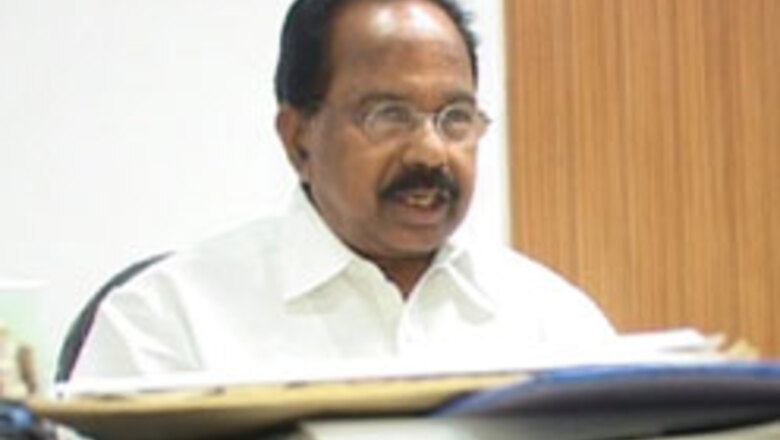
views
New Delhi: Unveiling several "out-of-the-box" ideas, the Oversight Committee has suggested that the Central Universities can stagger the implementation of the 27 per cent OBC quota in disciplines other than arts, humanities and social sciences like IIMs and IITs.
The innovative ideas include awarding National Merit Scholarships to OBCs students, enhancing retirement age of faculty members and removing the ban on recruitment of teaching staff.
"The Central Universities will implement 27 per cent reservation for OBCs in the first year in arts, humanities and social sciences disciplines. For the other disciplines, it would be phased over a period of two years, extendable by one more year to a maximum of three years, where unavoidable," the Committee said in its final report.
In its roadmap to implement 27 per cent OBC reservation, the Committee headed by former Karnataka Chief Minister Veerappa Moily said that Indian Institutes of Technology (IITs) and premier medical institutions like AIIMS and JIPMER would implement nine per cent quota each year beginning 2007-08 over a period of three years.
There was no single formula suggested for the six Indian Institutes of Management (IIMs). The rollout plan for IIM(A) showed six per cent implementation in 2007-08, seven and 14 per cent in the following years. IIM(B) would follow seven per cent in the first year and ten per cent each in the subsequent years.
For IIM (Kolkata), the formula is three, 15 and 9 per cent in three years while IIM (Lucknow) will implement the quota regime by eight, ten and nine per cent respectively.
IIM (Indore) will provide four per cent quota in the first and 11.5 per cent each in the subsequent years. IIM (Kozhikode) will have 4.5 per cent in the first two years and 18 per cent in third year.
PAGE_BREAK
In a bid to attract and retain faculty, the Committee has suggested that once an institution of higher learning ceases to be dependent on the government for funds for recurring expenditure, the institute should be free to determine its own salary structure for its faculty.
Vacant posts in teaching and non-teaching technical support staff like laboratory assistants and library staff should be filled on an emergency basis, the report said adding that all teaching staff should continue till the age of 62 at least.
At present faculty in Central universities and the agricultural institutions retire at the age of 62 while the age limit in the case of medical institutions is 60.
The committee also felt screening of faculty at the age of 62 and provide an extension to those facult members found fit till the age of 65.
For spotting and nurturing talents from excluded sections, the Committee proposed that a "National Merit Scholarship" be extended to cover gifted or meritorious students from Scheduled Castes, Scheduled Tribes, OBCs and others.
At least one lakh scholarships should be provided each year and the amount could be Rs 12,000 a month, it said. The scholarships should be available to students of Classes nine, 10, 11 and 12 and could be based on marks obtained in the merit scholarship test conducted by the NCERT.
A National Science Talent for Research and Innovation Fellowship at the pre-university stage to tap and retain bright science students through BSc and MSc programmes was also recommended in the report. There should be at least one lakh fellowships carrying Rs one lakh a year, it said.




















Comments
0 comment